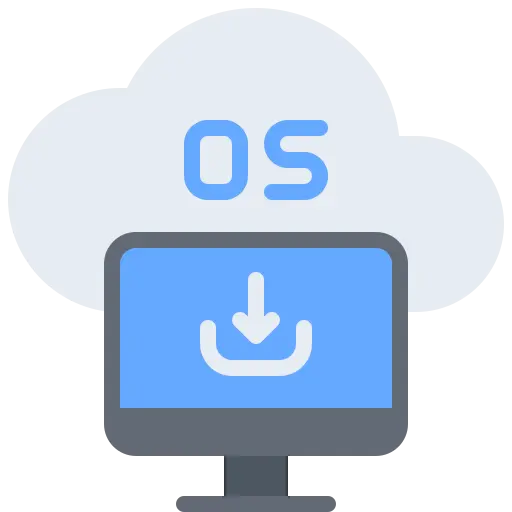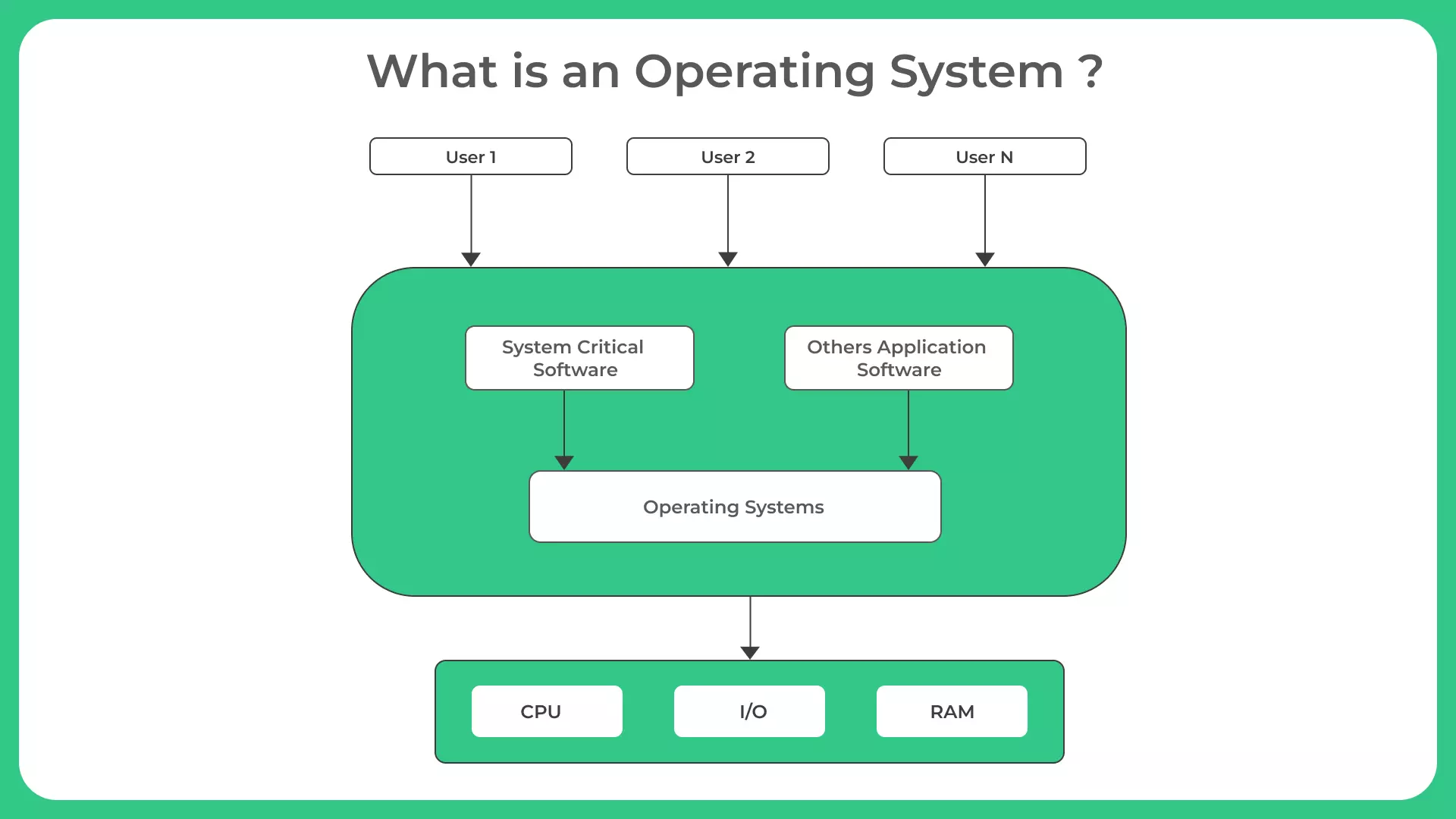What is an Operating System?
Operating System
An operating system is a software program that manages computer hardware and software resources, providing a platform for other software applications to run. It acts as an intermediary between the user and the computer hardware, enabling users to interact with the system and execute tasks effectively.

Purpose of an Operating System
The primary purpose of an operating system is to provide an environment in which applications can run smoothly and utilize the computer’s resources effectively. It manages memory, processors, input/output devices, and other system resources to ensure optimal performance and stability.
Evolution of Operating Systems:
Operating systems have evolved significantly over the years, adapting to the changing needs of computer users. Let’s take a brief look at the evolution of operating systems:
- Early Operating Systems:
In the early days of computing, operating systems were simple and mainly focused on managing hardware resources. Examples of early operating systems include the Batch Processing System and the Multiprogramming System. - Mainframe Operating Systems:
With the advent of mainframe computers, operating systems became more sophisticated and capable of supporting multiple users and tasks simultaneously. Examples of mainframe operating systems include IBM’s z/OS and UNIVAC’s EXEC 8. - Personal Computer Operating Systems:
The rise of personal computers brought about the need for operating systems tailored to individual users. Operating systems such as Microsoft Windows and Apple macOS became popular choices for personal computer users, offering user-friendly interfaces and a wide range of applications. - Modern Operating Systems:
Today, modern operating systems like Linux have gained popularity due to their open-source nature, flexibility, and robustness. Mobile operating systems like Android and iOS have also emerged, powering smartphones and tablets with advanced features and seamless app integration.
General Tasks carried by OS –
- Handling UI
- Handling input/output
- Process management
- File Management
- Memory Management
- Security
- other devices control like printer, SD card
Main Jobs handled by OS:
- Device Management
- File Management
- Memory Management
- Process Management
- UI Management
- Storage Management
- Application Handling

Functions of an Operating System
An operating system performs various functions to facilitate the operation of a computer system. These functions include:
Process management: It manages the execution of processes, scheduling them for execution, and allocating system resources to them.
Memory management: It controls the allocation and deallocation of memory space to processes, ensuring efficient memory utilization.
File system management: It provides a hierarchical structure for organizing and accessing files on storage devices.
Device management: It interacts with hardware devices, such as printers, scanners, and disk drives, to facilitate data transfer and communication.
User interface: It provides a means for users to interact with the system, such as through a command-line interface or a graphical user interface.
Popular Operating Systems
There are several popular operating systems in use today, catering to different computing needs. Let’s explore some of the widely used operating systems:
Windows
Microsoft Windows is a widely used operating system for personal computers. It offers a user-friendly interface, extensive software compatibility, and a range of features for both home and business users.
macOS
macOS is the operating system developed by Apple Inc. for its Macintosh computers. Known for its sleek design and seamless integration with other Apple devices, macOS provides a user-friendly and secure computing experience.
Linux
Linux is an open-source operating system that has gained popularity for its stability, security, and versatility. It powers a wide range of devices, from servers to smartphones, and offers a vast array of software options.
Android
Android is a mobile operating system developed by Google. It powers a majority of smartphones and tablets worldwide, offering a customizable user interface, extensive app ecosystem, and integration with Google services.
iOS
iOS is the operating system developed by Apple Inc. for its mobile devices, including iPhones and iPads. It provides a seamless and secure user experience, along with access to a wide range of apps optimized for Apple devices.
Conclusion
An operating system is a key part of how a computer works. It helps the computer’s hardware and software talk to each other, so everything runs smoothly. Think of it like the middleman that lets you use apps and control your computer easily. Knowing what an operating system does, the different types, and how it works gives you a good starting point for understanding how computers really work.
FAQs
Operating systems include batch, time-sharing, distributed, real-time, and embedded systems. Each is designed for specific use cases and hardware environments.
An OS provides user authentication, access controls, and encryption to protect data and system integrity. It also manages permissions for files and processes.
The kernel is the core component of an OS that manages system resources and communication between hardware and software. It operates at a low level close to the hardware.
Multitasking allows multiple programs to run simultaneously by efficiently managing CPU time. It enhances productivity and system responsiveness.



Login/Signup to comment